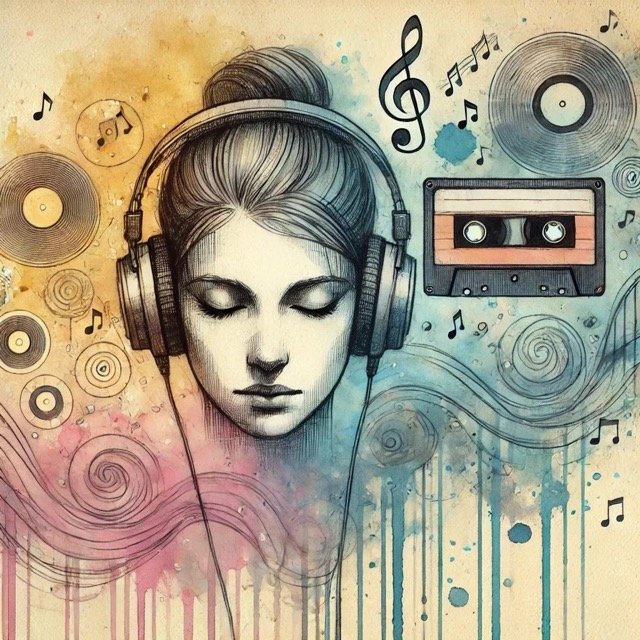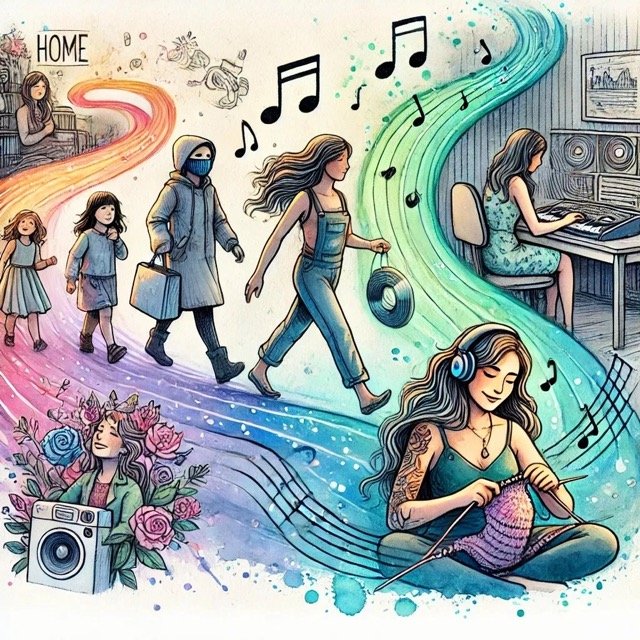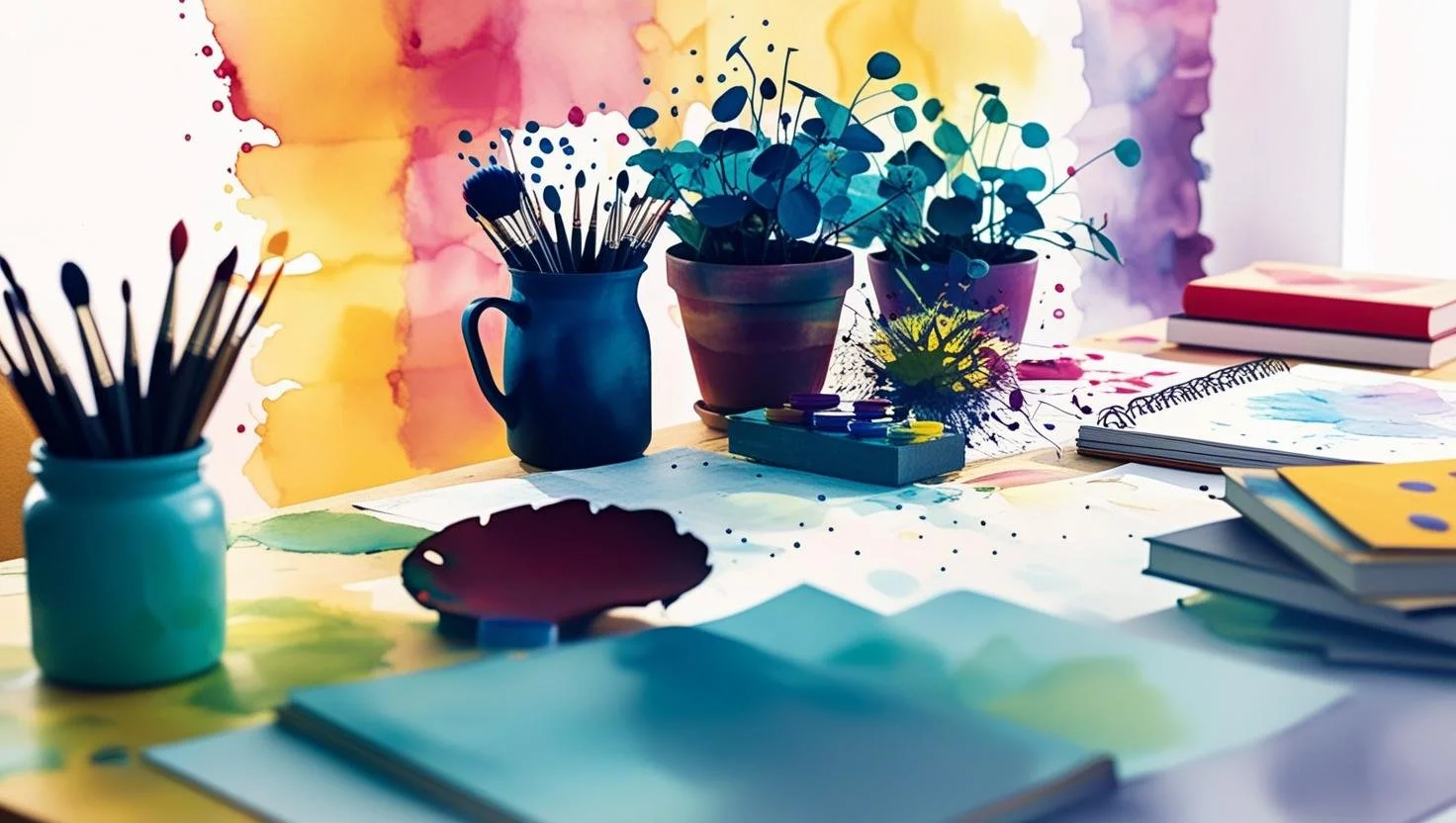
Rewriting Your Own Fairy Tale: What Jung, Bettelheim, and Neurodivergence Teach Us About Ourselves
Rewriting Your Own Fairy Tale – How Stories Shape Our Psychology
Ever felt like you were the outsider in your own story—the odd one out, the one who didn’t fit the mold? Fairy tales have a way of mirroring our inner struggles, and for neurodivergent, creative minds, they often feel strangely personal.
Psychologists like Jung and Bettelheim believed that fairy tales aren’t just stories; they’re psychological maps, filled with symbols of transformation, survival, and self-discovery. What if we could use these stories not just to escape, but to rewrite our own narratives?
🔹 Try This: If your life were a fairy tale, which archetype would you be? The lost wanderer? The hidden genius? The trickster? What if you’re actually the hero who just hasn’t reached the final chapter yet?
Let’s explore how fairy tales can help us reshape the way we see ourselves, our struggles, and our potential for transformation. ✨📖

Escaping Into the Past, Grieving the Present: A Reflection on Nostalgia, Music, and the World We Leave Behind
Why does the past sometimes feel safer than the present? This personal reflection explores the bittersweet pull of nostalgia, the way music transports us to lost moments, and the quiet grief of watching the world change. If you’ve ever found comfort in old songs, faded memories, or the longing for a time that no longer exists, this is for you.

How to Begin Inner Child Healing — 10 Signs Your Inner Child is Calling Out To You
Ever feel like there's a younger version of you still carrying old wounds? That’s your inner child, whispering for attention. This guide explores 10 key signs your inner child needs healing, from emotional triggers to patterns of self-sabotage. Learn how to reconnect with your past self, foster deep self-compassion, and begin the journey toward emotional healing.

Fifty & Unfiltered: Embracing My Neurodivergent Journey
Fifty & Unfiltered – Embracing My Neurodivergent Journey
Turning fifty as a neurodivergent woman feels like finally taking a deep breath after decades of holding it in. For years, I masked, molded, and tried to fit into a world that wasn’t built for my brain. But now? I’m done shrinking myself.
At fifty, I’ve learned that my intensity, my deep emotions, my scattered-yet-brilliant way of thinking—these aren’t flaws. They are part of who I am, and I refuse to apologize for them anymore.
🔹 What I wish I knew sooner: You are not “too much.” You are not broken. You are not here to meet the expectations of people who don’t understand you.
Here’s to living unfiltered, embracing every neurodivergent quirk, and taking up space unapologetically.

Want to Know What Art Therapy Is All About?
What is Art Therapy?
Art has long been a powerful tool for self-expression and emotional healing. More than just aesthetics, the creative process taps into our subconscious, offering a path to deeper self-awareness and personal growth.
Art therapy is a psychotherapy approach that uses creative expression to support mental, emotional, and even physical well-being. Unlike traditional talk therapy, art therapy allows individuals to express emotions non-verbally, giving shape to feelings that may be difficult to articulate.
At its core, art therapy is based on several key principles:
Non-Verbal Expression – Art offers a unique form of communication beyond words.
Self-Exploration – Creativity fosters deeper introspection and emotional awareness.
Symbolism – Artistic creations can reveal subconscious thoughts and emotions.
Empowerment – The creative process provides control over one’s healing journey.
Holistic Healing – Art therapy acknowledges the mind-body connection in emotional wellness.
Whether through guided sessions with a therapist or self-led creative exercises, art therapy provides a safe and transformative way to explore emotions. Looking for a place to start? Try Printable Art Therapy Cards for mindfulness and emotional reflection.
📌 Want to explore more creative therapy tools? Visit my Etsy shop: Creative Therapy Printables for resources designed by a psychotherapist to support emotional well-being.
- neurodivergence
- mental wellness
- Mental Health
- mid-life discovery of neurodivergence
- personal growth
- autism
- adhd
- creative mindfulness
- Self-Help and Personal Growth
- archetypes in art
- Jungian psychology
- Creative Wellness
- audhd
- self-expression
- Mindfulness and Creativity
- Self-Expression
- Emotional Well-being
- menopause
- Neurodivergent Support
- mindfulness
- art therapy
- meltdown
- self awareness
- Art Therapy
- jungian therapy
- Creative Therapy
- Journaling and Art
- christmas mental health
- Art as Healing
- overwhelm
- myth and symbolism
- teen mental health
- symbolism in art
- parenting
- neurodivergent children
- coping strategies
- imagination
- adding outlines
- cards
- shadow work
- collective unconscious
- archetypes
- Healing Through Art
- stress relief
- holiday mental health
- masking
- Psychotherapy Tools
- modern creativity
- gen z
- quirks
- relaxation techniques
- current affairs
- children
- meaning
- grief
- frozen
- psychology of ar
- ways to relax
- Bruno Betelheim
- parties
- Trauma Recovery
- chromotherapy
- internet
- shutdown
- synchronicity
- Narrative Therapy
- storytelling in art
- fairy tales
- Therapeutic Art
- brat energy
- personality types
- inner child healing
- coincidence
- burnout
- anima/animus
- Executive Function
- healing through art
- nostalgia
- unconscious
- the power of colour
- slang
- creative therapy
- play therapy
- Pathological Demand Avoidance
- digital art
- doodling
- reverse colouring
- mbti
- turning fifty
- colour therapy
- metaphorical associative cards


